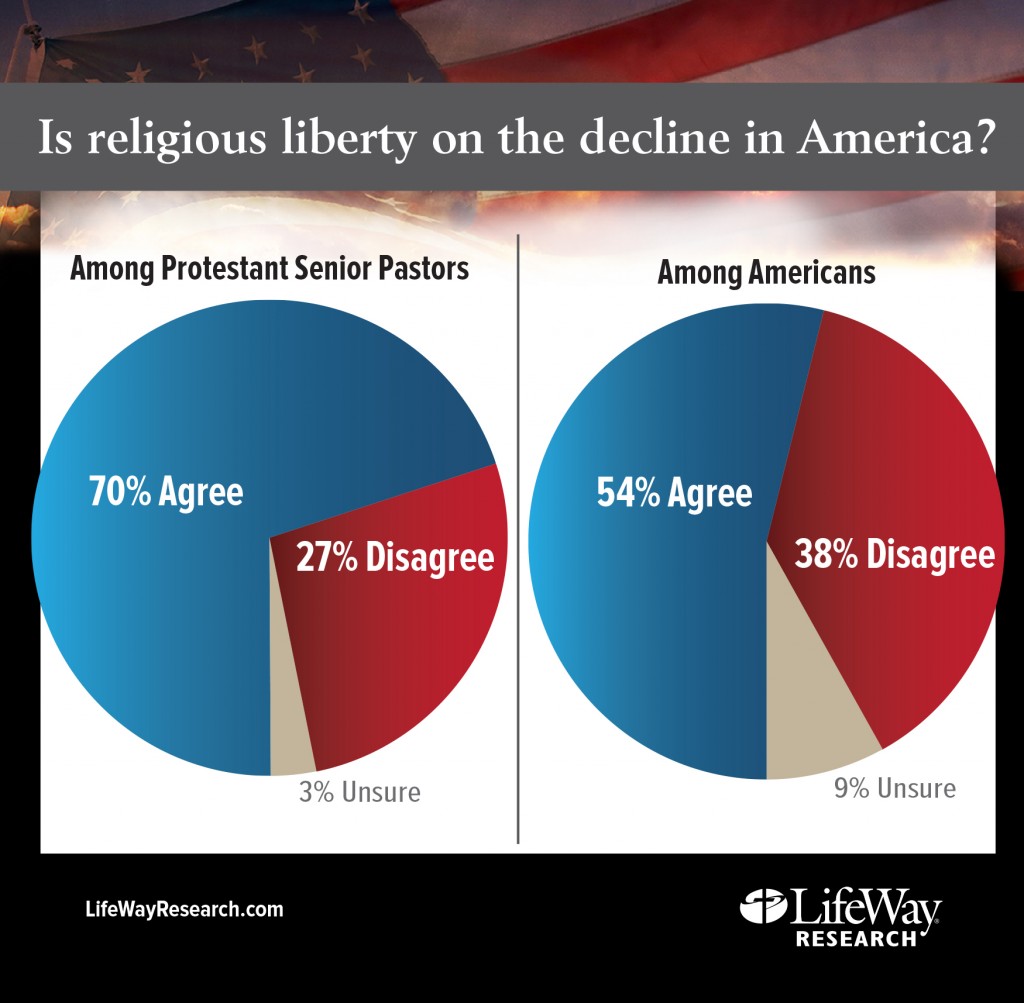Proposed religious liberty exemptions for wedding vendors — such as bakers, florists and photographers — opposed to same-sex marriage keep making headlines.
Here at GetReligion, we’ve highlighted recent media coverage of a ballot initiative in Oregon and legislation in Kansas (where the Senate, for now, has killed a controversial measure). The Tennessean reported this week on a similar bill failing in Tennessee.
Meanwhile, LifeWay Research released results of a national survey today. LifeWay’s Bob Smietana has the story:
NASHVILLE, Tenn. – Americans have always had mixed feelings about religious liberty. Most say it’s important, but they don’t always agree how much liberty is enough or too much.
That’s the issue at the heart of the upcoming Supreme Court hearings between Hobby Lobby and the Obama Administration over the HHS contraceptive mandate.
It’s a dispute that is unlikely to go away, no matter what the Supreme Court decides.
American preachers, it turns out, are more than a bit uneasy about religious liberty these days.
A survey from Nashville-based LifeWay Research found seven out of 10 senior pastors at Protestant churches say religious liberty is on the decline in America. About seven in 10 also say Christians have lost or are losing the culture war. The telephone survey of Protestant senior pastors was taken Sept. 4-19, 2013.
Of course, social media such as Twitter are the modern-day water cooler, and the religious liberty issue inspired an interesting discussion Wednesday between two of Religion News Service’s national correspondents: Sarah Pulliam Bailey (of former GetReligionista fame) and Cathy Grossman (who has blogged on the “values tug-of-war”).














